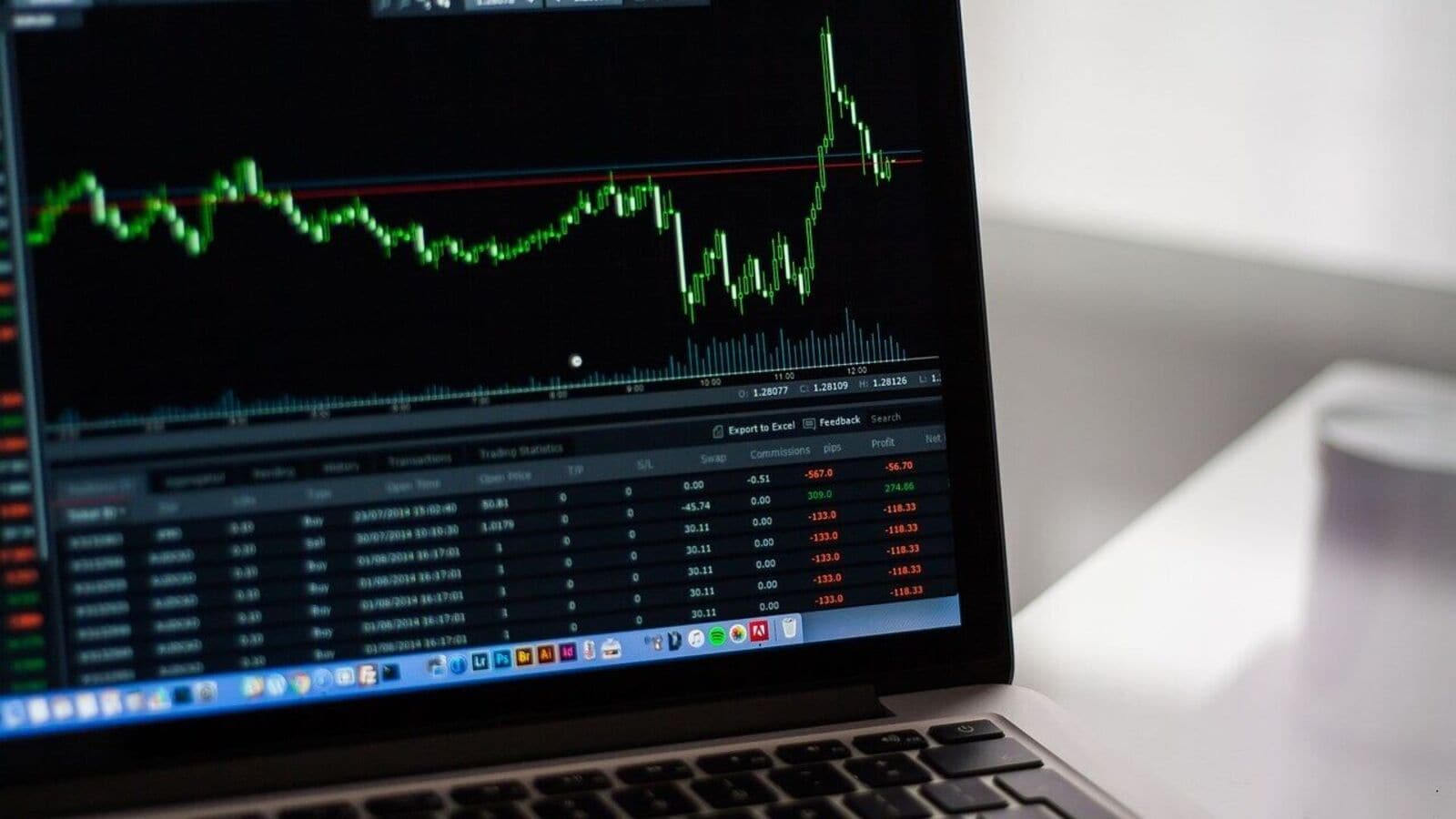Interest is increasing. According to an analyst, the monthly trading volume of unlisted securities is expected to increase to $300 million in 2024 from $50-60 million last year. Reason: The all-time return of the Primex 40 index, which tracks top private companies, reached 25.85% compared to 15% for the Nifty 500. However, Primex 40 has lagged behind in the last three years and is contributing 12.62% against Nifty-500 Multicap’s 17.91%.
The top three companies in the unlisted sector by market capitalization are NSE, Tata Capital and Naira Energy, while BIRA and NCDEX are at the bottom.
This is how it works. Wealth platforms help ESOP holders or early investors sell their shares before a company goes public. They do this by buying shares from investors and selling them to other investors.
Arjun Jaiswal, an equity investor of four years, exemplifies this growing trend. Frustrated with the limited opportunities in the listed market, he recently moved into unlisted securities. “I wanted to grab some companies early in the unlisted sector for better returns,” he said. ,
Read this also Late-stage funding has revived after the pre-IPO round; seed round conflict
Ahmedabad-based investor Sandeep Nirvana applied for over 100 initial public offerings (IPOs) and won allotment in only three. Then he turned his attention towards the unlisted place. His portfolio includes investments in Swiggy, Five Star Business Finance, Ixigo, Capital Small Business Finance, OYO, API Holdings, Metropolitan Exchange and NSE.
“Out of over 100 applications, I got allotted only three, and one of them is listed at a premium. “This is the biggest reason why I started investing in the pre-IPO stage,” Nirvana said.
The possibility of adequate returns keeps them invested in this sector. “Swiggy has almost doubled, Five Star is up 40%, Ixigo is showing 60% profit, and OYO is at 70% profit. Only the API (PharmEasy) is trading at 40% less than my purchase price,” he said.
Nirvana pointed out that low brokerage charges and stamp duty add to the appeal of pre-IPO investments.
The pre-IPO segment has been a key driver of this surge, as investors are attracted to companies preparing for public listing, attracted by the prospect of attractive returns. peppermint Reported in August.
regulator heat on platforms
However, the rapid expansion of the market has not gone unnoticed by regulators. In the last two months, SEBI has increased scrutiny of platforms facilitating trading in unlisted securities.
In November, the regulator flagged three platforms for offering non-convertible debentures (NCDs) in violation of the Companies Act. By December, it issued a sweeping warning, highlighting the lack of investor protections such as grievance redressal mechanisms and dispute resolution on unregistered platforms.
Read this also Mint Explainer: SEBI’s latest reforms for SME IPOs, merchant bankers and mutual funds
“The unlisted sector has attracted a large number of investors in the last three years due to the wave of exits through IPOs. “Investors feel that even if they cannot directly access the IPO, they can take advantage of the opportunities through pre-IPO investments,” said Narinder Wadhwa, managing director at brokerage house SKI Capitals.
“This sector is gaining traction, partly due to a sense of FOMO (fear of missing out) as investors see others joining in. Wadhwa said, there is a lot of trading activity in the shares of companies like NSE, NSDL and Oyo, especially in the shares of those companies which have filed their DRHP and are awaiting the IPO launch.
Suvajit Ray, head of product and distribution at IIFL Capital, emphasized that large brokerage houses avoid advising investors to trade in unlisted securities due to low liquidity and high risk, but he said there are some websites which These provide services.
what are platforms called
Platforms play an important role in the unlisted securities market, acting as intermediaries that provide liquidity to early investors or ESOP holders in companies preparing for public offerings. These platforms enable investors to buy shares from these early stakeholders and sell them to others who expect to profit after the IPO.
Kashish Sharma, chief executive of Equity List, a platform for cap tables and stock options management, said many venture capital-backed companies leverage these secondary trading platforms to assess IPO readiness, which to some extent pre- Work like a road show.
However, “there are no explicit accreditation checks, which lowers the barriers to entry”, he explained, underscoring the lack of oversight compared to other investment platforms.
Wadhwa of SKI Capitals said platforms linked to regulated entities like brokerage firms inspire investor confidence. He said investors feel confident that their commitments will be honored when platforms engage in regulated activities.
Amidst the increasing demand, SEBI has cautioned investors against trading on unauthorized platforms and urged them to exercise caution. However, some platforms argue that a more structured framework is needed to meet the needs of the market due to the existing regulatory void.
Read this also IPO share sales in India reach record high in 2024, up almost 3x from last year due to enthusiastic interest from investors
Precis, an unregulated platform, has sought guidance from SEBI to obtain regulatory authorisation. “Obtaining regulatory approval to operate as a trading platform for unlisted securities presents significant challenges. We welcome SEBI’s clarity and guidance in taking this process forward and will adapt it as the regulatory landscape evolves, the platform said in a statement.
SEBI’s recent advisory has underlined the illegal nature of trading on unregistered platforms, emphasizing that only recognized stock exchanges are permitted to facilitate trading of “to be listed” and “listed” securities. Is.
Ketan Mukhija, senior partner at Bergian Law, described the advisory as a clear warning to unauthorized platforms to stop operating and seek appropriate authorisation.
Wadhwa said this is not the first intervention by SEBI. A similar advisory was also issued in 2016, yet many investors continued to use these platforms despite the risks. SEBI’s latest warning highlights the challenges in regulating this unstructured sector, he said.
Another unregulated platform, UnlistedCart, argued that India could adopt practices from the US pre-IPO market, where accredited investors are allowed to trade shares before companies go public. It suggested that off-market transactions, where buyers and sellers connect directly, could reduce regulatory concerns.
“In case of fraud, investors can file a complaint with the police, but there is no guarantee of safety,” it warned, advising investors to deal only with trusted dealers.
debt securities
Recent monitoring by SEBI has revealed that some unregistered platforms were selling unlisted non-convertible debentures (NCDs) to retail investors in violation of the Companies Act, 2013.
The regulator stressed the distinction between public issues and private placements, warning that unregulated operations by these platforms pose significant risks to the public. SEBI also highlighted the lack of investor protections such as grievance redressal mechanisms and online dispute resolution, making these transactions particularly risky.
According to Damodar Desai, partner, Little & Co, individuals listing securities on unauthorized platforms may face significant penalties under both the Securities Contracts (Regulation) Act and SEBI regulations. 25 crores or imprisonment up to 10 years.
Read this also Breaking the “jinks” of confidential IPO filings: Swiggy’s Sriharsh Majeti on running a newly listed company
Many companies whose shares are traded on these unregulated platforms have distanced themselves from such activities. For example, consumer electronics unicorn boAt has clarified that it has no affiliation with any platform or any involvement in the listing of its shares on such platforms. A spokesperson for boAt said, “Those who participate on these platforms do so at their own risk.”
Raja Singh Bhurji, chief executive of The StepUp Ventures, said pre-IPO trading provides early access to high-growth companies, but it also creates risks for employees at startups, who often lose their ESOPs due to the lack of buybacks. Sell on unregulated platforms. Option.
While Sebi’s warning may initially reduce liquidity for such employees, Bhurji believes the focus on compliance and investor protection will eventually lead to safer alternatives such as trading through recognized exchanges.
looking ahead
Legal experts predict that SEBI will increase surveillance, tighten regulations and enforce penalties against unauthorized activities in the unlisted securities sector.
Sanjay Israni, partner, Desai & Dewanji, advised platforms to follow SEBI guidelines, including proper registration, disclosure requirements and grievance redressal system. He also recommended stronger cyber security measures and regular audits to maintain compliance.
As the unlisted securities market grows, the evolving regulatory framework of SEBI will play an important role in balancing investor protection with promoting a more transparent and safe environment for secondary trading.
Read more IPO size to get even bigger after average size doubles Rs 2,000 crore this year: Kotak’s S Ramesh













